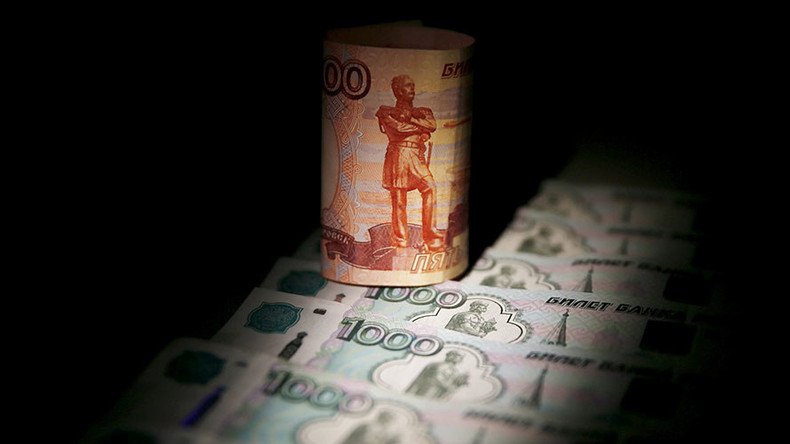Investors eager for Russian high-yield bonds

Near-zero interest rates are forcing investors to look for higher yields, and that could come from Russian corporate bonds, even though they are difficult to get under Western sanctions.
Russian issuers were practically ousted from the world’s financial markets in early 2014 when European and US sanctions were introduced. Since then the Russian bond market has fallen 19 percent, losing $31 billion, according to data from Uralsib Capital. That has created a shortage of investment opportunities for those seeking to avoid near-zero rates.
“There is a kind of gold dust premium in Russia. There have been times when we’ve looked to increase our exposure in certain issuers and we can’t. There’s just none around,” said Ariel Bezalel, a money manager overseeing Jupiter Asset Management’s $7 billion Dynamic Bond.
Russia has faced a liquidity shortage in emerging-market debt pushed by an upsurge in demand for high-yield assets after UK’s vote to quit the European Union. A new wave of rate cuts followed from the world’s central banks.
Russian companies lost the opportunity to borrow in foreign markets with some starting to buy back bonds, further inflaming the supply shortage.
Rates dropped 68 basis points in the period across emerging markets with as the yield on 10-year US Treasuries climbed 1.56 percent and similar German bonds showed minus 0.07 percent.
Russian assets undervalued, demand outstrips availability – Gazprombankhttps://t.co/gNoTVGqeyM
— RT (@RT_com) June 17, 2016
At the same time, Russian corporate bonds have yielded 0.94 percent in July, with a return of over eight percent since the beginning of the year, or 13.7 percent return in annual terms, according to Uralsib data.
The rise in value and declining yields has not scared investors away. In July, money managers invested $14 billion in emerging-market debt funds, the biggest monthly inflow, according to EPFR Global.
READ MORE:Kremlin to issue first post-sanctions Eurobonds
“Selling is easy in this environment, but buying bonds is difficult,” said Joep Huntjens a money manager at the Hague-based Nationale-Nederlanden, who has a heavy position in Russian debt. The analyst stressed that in Russia the situation was especially tight for a lot of the issuance used to tender some existing bonds.













